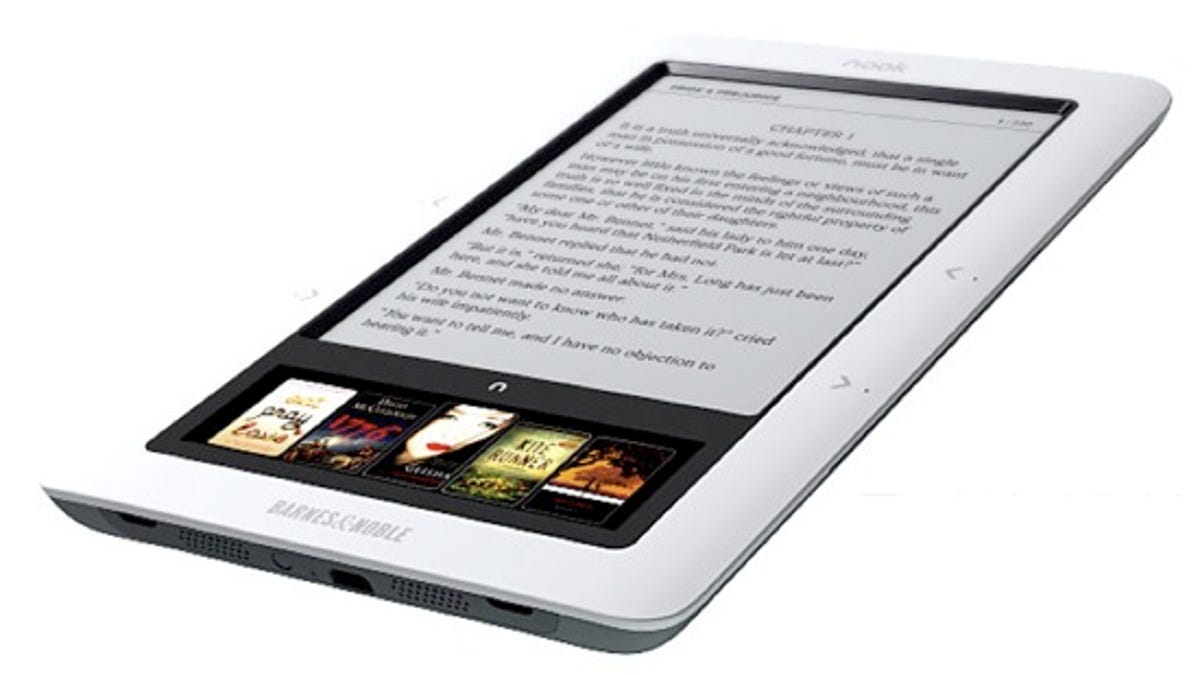Lessons for Nook from Zune
Microsoft's Zune mp3 player may offer some lessons for Barnes & Noble's new Nook e-reader about how to make headway against a market leader.
It's busy times in the e-book reader world, with Barnes & Noble launching Nook, Plastic Logic making noise about a new Que reader (no doubt to counteract B&N's announcement), and Amazon lowering prices on the Kindle.
The Nook is the device getting the most buzz, having been launched a few days ago. It's white, has an e-ink screen, and is priced at $259, all like the Kindle. But it also adds a nice color touch screen "strip" below that is used for browsing and buying new books. It's an interesting of-the-moment alternative to the Kindle's keyboard.
The Nook's biggest distinguishing feature is its ability to wirelessly "lend" e-books to another Nook user for 14 days. During that time the lender cannot read the book, just as if they'd handed over a physical copy.
This is very reminiscent of the sharing feature Microsoft built into Zunes from the start, in fact this was one of the Zune's biggest distinguishing characteristics from the iPod. However, it did not help the Zune get above single digit market share. So is lending (or borrowing) really a feature that people care about?
I think the Nook has a couple of things going for it that didn't work for the Zune.
1. The Kindle isn't a monopoly
The Kindle, on which I was unduly harsh when it first appeared, has been the most popular e-reader. But it does not yet have the massive market presence that the iPod did by the time the first Zunes came out. (Amazon has not released sales numbers, but TechCrunch estimates it somewhere north of a million.) This matters because lending and borrowing are only attractive if you believe there will be other people near by you whose taste you trust to borrow from.
The tide was clearly against the Zune by the time it came out, which did not give consumers confidence that there would be other Zune users to get music from. In that case, it was just safer to stick with the leader, the iPod.
2. Books are better for short-term sharing
Music is something that, if you like it, you will want to listen to for a long time. The Zune has quite strong restrictions on how long somebody can listen to the song after they first borrow it, and for the lender not all songs can be shared. This makes for a suboptimal experience for the borrower, and frustrating inconsistency and confusion for the lender.
However, with many books a single read will do, so a limited borrowing time is less problematic. It's why libraries worked for so long. (I'm not sure if the self-destruct on borrowed books starts from the time of lending, or the time of first reading. From a reader's perspective, obviously, the second is preferable since with our busy lives it might be a while before you get to starting a book.)
But Barnes & Noble should also take a lesson from Zune and apply the lending rules universally across all titles. Don't let happen what happened to Microsoft where the studios placed restrictions on certain songs and artists who were hot at the time. Barnes & Noble is in the fortunate (for them) position, however, that book publishers are in a much weaker state than music labels.
I can't help wondering if Barnes & Noble is pitching the wrong angle of lending, though. Lending is altruistic, whereas borrowing is selfish. If I'm a prospective Nook buyer, I'm more thinking about what's in it for me than how I can be beneficent to my fellow Nookies (Nook owners).
